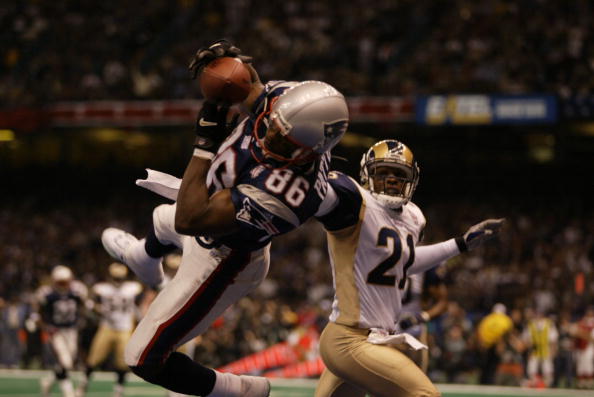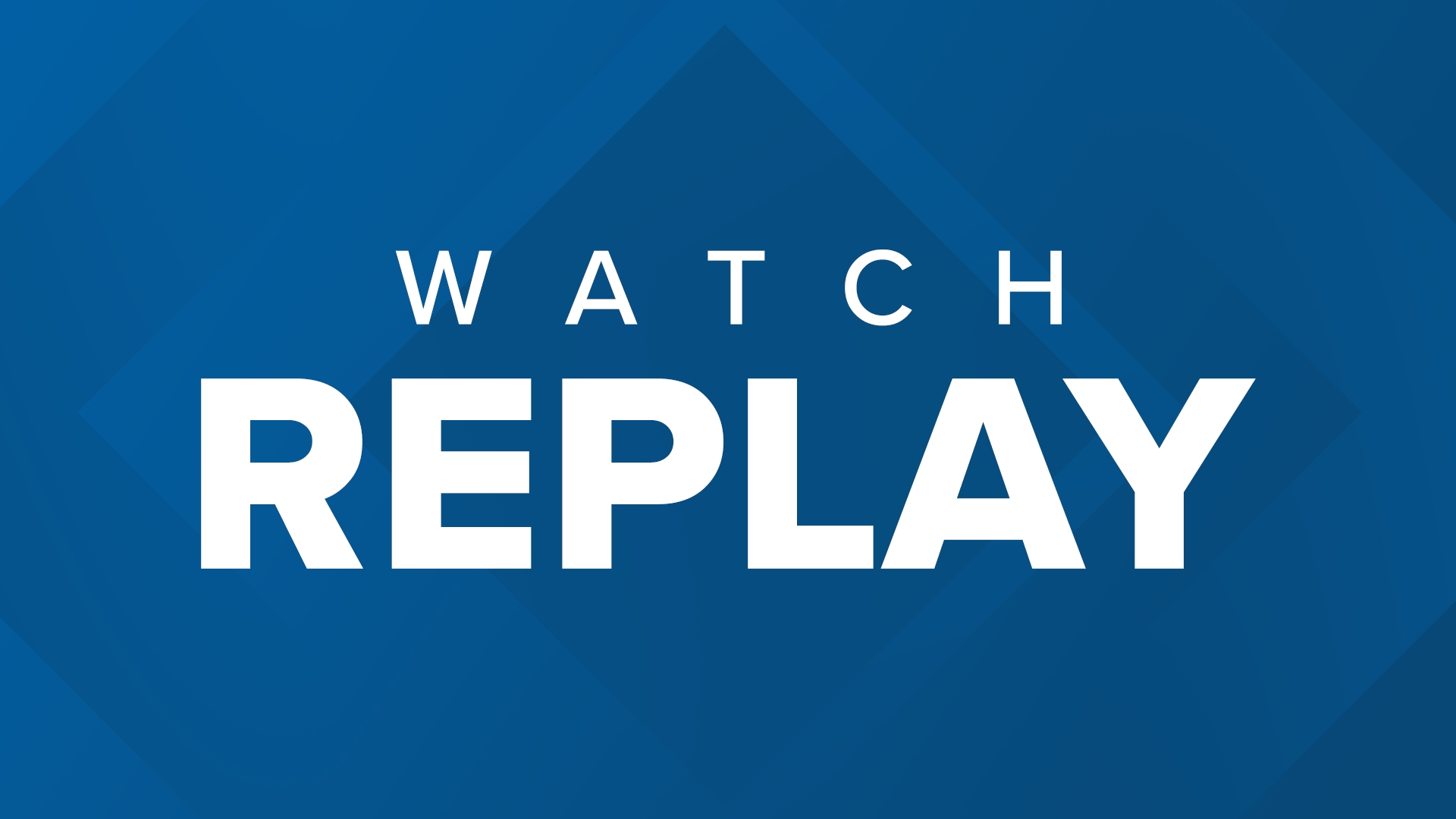NEW ORLEANS — Sixteen seasons ago, the NFL delayed mid-September match-ups due to the September 11 terrorist attacks, the New York Giants' Michael Strahan would set the single-season sacks record,and the Miami Dolphins would play their first game in 17 seasons without Dan Marino at quarterback.
However, it was another player who wore number 13 that was setting the league on fire. Two years earlier, Kurt Warner led the St. Louis Rams, whose offense would come to be known as the "Greatest Show on Turf," to a dramatic Super Bowl victory over the Tennessee Titans. Even after a loss in the 2001 playoffs, coming into the 2002 season, the Rams were still a favorite to reach the Big Game.
The Hare vs. the Tortoise
The Rams' explosive offense was led by running back Marshall Faulk, who had already established himself with the Indianapolis Colts before being traded to St. Louis, and receivers Issac Bruce and Terry Holt.
However, Warner was the anchor of the team. In the 1999 and 2000 seasons, Warner put up nearly 7,800 yards and 62 touchdowns. At the time, many considered Warner the undisputed best quarterback in the league.
The Rams finished the regular season 14-2. The Greatest Show on Turf lived up to their name, averaging 31 points per game on offense. Meanwhile, the defense gave up only 17 PPG.
After clobbering the Green Bay Packers 45-17 in the NFC Division round, the Rams held off a fourth-quarter rally by the Philadelphia Eagles in the NFC Championship to advance to Super Bowl XXXVI, their second appearance in three years.
While no one was surprised to see the Rams back in the Big Game, their opponent, the New England Patriots, seemed to rise from obscurity.
The Patriots had been to the Super Bowl only twice before, losing each game by more than two touchdowns. Head coach Bill Belichick was in his second season after being fired as the head coach of the Cleveland Browns. In the 2000 season, the Patriots finished last in the AFC East with a mediocre 5-11 record.
The Patriots seemed to be setting up another average season with an 0-2 start. To make matters worse, starting quarterback Drew Bledsoe suffered a major injury. Tom Brady, a relatively unknown sixth-round draft pick out of Michigan, replaced Bledsoe in the loss.
By the end of October, the Patriots were 3-4, a long shot to even make the playoffs. However, beginning in November, the Patriots caught fire, going 8-1 in their final nine regular season games. That one loss was to the Rams on November 18.
After clinching the AFC East with a victory over the Carolina Panthers, the Patriots would play their divisional game against the Oakland Raiders in a snow-covered Foxboro Stadium, the final game in that arena.
New England was losing 13-10 late in the fourth quarter and had possession of the ball. Oakland seemed to have the game won after recovering an apparent fumble by Brady with 1:43 to play. However, during a review, referee Walt Coleman determined Brady's arm was moving forward, thus making the result of the play an incomplete pass.
The Patriots would tie the game with a field goal by Adam Vinatieri who would also go on to kick the game-winning FG.
Oakland remained bitter about the reversed fumble, maintaining Brady had tucked the ball prior to being hit, thus invoking the "tuck rule." The rule would be abolished more than a decade later.
The Patriots would play the top-seeded Pittsburgh Steelers in the AFC Championship. In the second quarter, Bledsoe, who had recovered from his chest injury during the regular season, was forced to replace Brady after he then got hurt.
Despite the change at QB, New England took an early 21-3 lead in the third quarter. While the Steelers managed to slowly peck away at the lead, the Patriots would go on to clinch the game and a berth into their first Super Bowl since 1998.
Even with Brady's injury in the AFC Championship, Belichick decided to stick with the young play caller to start the game against Warner and the Rams.
The Game
Super Bowl XXXVI took place on February 3, 2002 at the Louisiana Superdome in New Orleans.
The legendary commentary team of Pat Summerall and John Madden had the call for Fox Sports that night. It would be their eighth Super Bowl together. It also marked the last game the pair ever called.
The Super Bowl would be the first since 9/11. The pre-game featured several tributes to America from stars such as Paul McCartney and Mariah Carey. NFL players appeared in a video reading the Declaration of Independence while former presidents Gerald Ford, Jimmy Carter, George H.W. Bush and Bill Clinton read excerpts from Abraham Lincoln speeches.
The game's halftime show featured a memorable halftime performance by U2, who paid tribute to the heroes of 9/11, both living and dead. It is considered one of the best Super Bowl halftime performances in history.
Before the game, Super Bowl tradition held that the starters for each team were announced individually. However, Belichick, as a show of togetherness in the wake of the attacks, demanded his team enter the field together. Since that game, every Super Bowl team has entered the stadium together.
The Rams struck first on their second drive. Led by Warner, St. Louis advanced the ball to the 32-yard line. From there, kicker Jeff Wilkens knocked a 50-yard field goal through the uprights to take a 3-0 lead midway through the first quarter.
Early in the second quarter, Wilkens tried a 52-yard field goal, but the kick was no good.
The Patriots defense continued to stall, once again allowing the Rams to take over. However, New England intercepted a pass from Warner, intended for Isaac Bruce, and returned it 47 yards for a touchdown. The Patriots took a 7-3 lead and swung the momentum in their favor.
Late in the first half, the Patriots would again take over following a fumble by Ricky Proehl.
With 1:20 to go until the intermission, Brady led the Patriots down the field to the 8-yard-line. With :36 left in the first half, Brady connected with receiver David Patten for a touchdown.
The Patriots would go into halftime with a 14-3 lead and all the momentum on their side.
Defense continued to dominate the game throughout the third quarter as each team traded possessions. With about 3:30 remaining in the thrid, New England's Otis Smith picked off Warner for the second time, giving the Patriots the ball inside the Rams' 40-yard-line.
Vinatieri added a field goal for a commanding 17-3 lead going into the final quarter.
Early in the fourth quarter, Warner led the Rams on a drive that took them to the Patriots' 1-yard-line. Faulk punched the ball into the end zone to cut the lead in half.
With less than two minutes left in the game, the Rams took possession at their own 45-yard-line. Warner completed three consecutive passes, including a 26-yard-touchdown to Proehl, to knot the score at 17 all. The Rams' charge would be the largest fourth-quarter comeback to tie a Super Bowl for more than a decade. That mark would eventually be surpassed by the Patriots in 2016.
With 1:20 left in the fourth quarter, Brady completed five of eight passes with surgical precision to advance the ball to the Rams' 30-yard-line.
On second down with :07 remaining, the Patriots called on Vinatieri one last time. His 48-yard attempt was successful, marking the first time a Super Bowl ended on the final play.
It was New England's first Super Bowl win, after having made two other appearances in the Big Game (1985, 1998), and Brady was named the game's MVP.
Changing Fortunes
Super Bowl XXXVI, perhaps more than any other in the 21st century, completely changed the course of NFL history.
New England would go on to establish one of most dominant dynasties in NFL history. Though they would miss the playoffs in 2002, the Patriots would win the next two Super Bowls over the Carolina Panthers and the Philadelphia Eagles.
The Patriots would win two more Super Bowls in 2014 against the Seattle Seahawks and in 2016 against the Atlanta Falcons. Additionally, the Patriots appeared in three other Super Bowls in 2007, 2011 and 2017.
Brady earned his place among the list of the all-time greatest quarterbacks. His five Super Bowls and 207 wins are both NFL records. Brady also holds virtually every NFL post-season and Super Bowl record in wins and passing.
As for St. Louis, the era of the "Best Show on Turf" came to an end. Like the Patriots, the Rams missed the 2002 playoffs. They would lose in the playoffs in 2003 and 2004 to kick off an extended playoff drought that lasted until 2017.
By 2015, St. Louis fans had begun to drift away from the team, particularly due to the popularity and postseason success of the St. Louis Cardinals in the MLB. Around the same time, Los Angeles was pushing to get a NFL team to return to the city for the first time since the mid-1990s.
That year, the Rams franchise applied to relocate to LA, along with the Charges and Raiders. In January 2016, the Rams officially announced the move. Their final game in St. Louis was a 31-23 victory over Tampa Bay in December 2015
Exactly 17 years later, the story may coming full circle.
Brady, 41, is likely in the twilight of his career. Meanwhile the Rams are filled with young talent hoping to establish their own reputation. In fact, Rams coach Sean McVay is eight years younger than Brady. And many of the players from both teams were likely young boys when the Rams and Patriots faced off in 2002.
Needless to say, times have changed.
RELATED: How to watch Super Bowl 53
RELATED: Inside of the Super Bowl Experience


